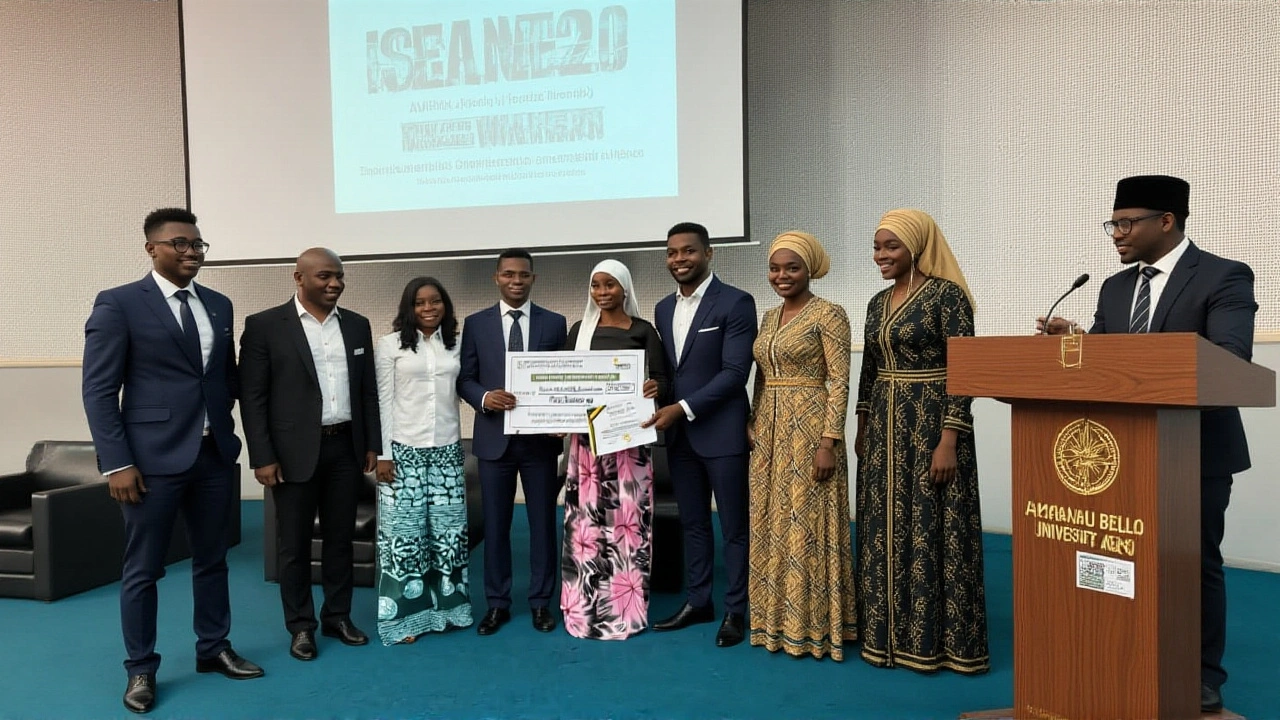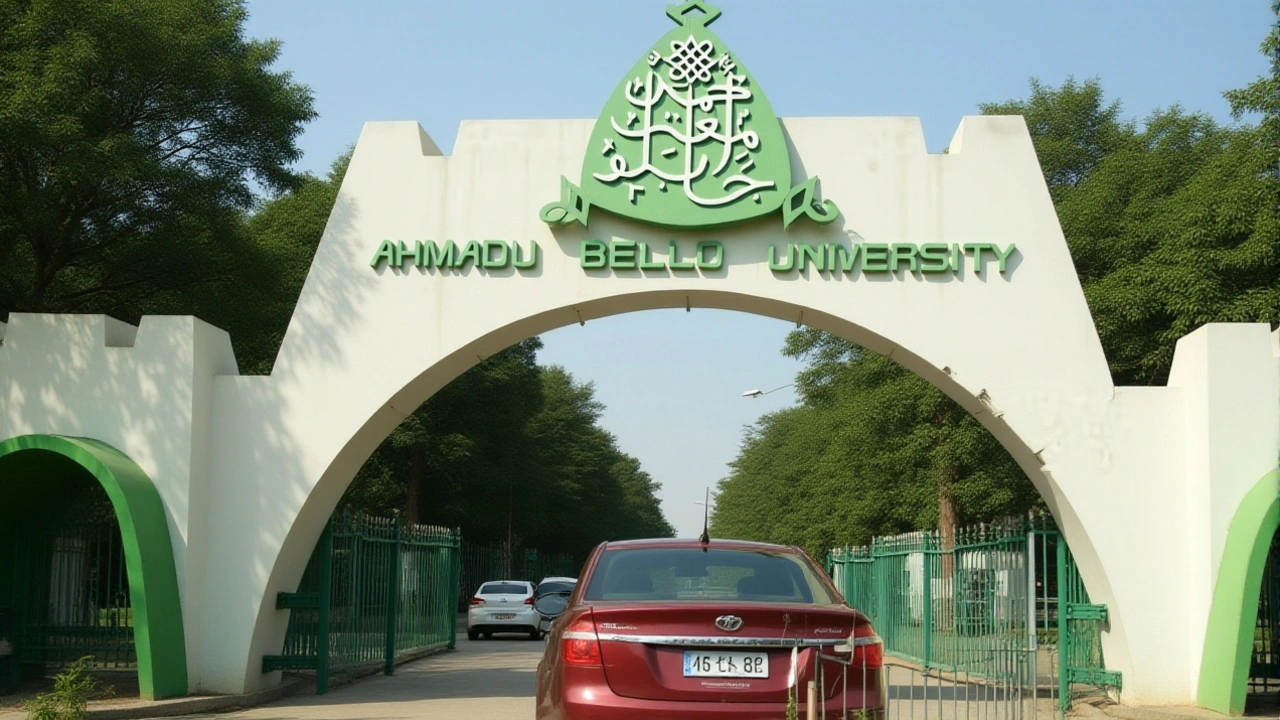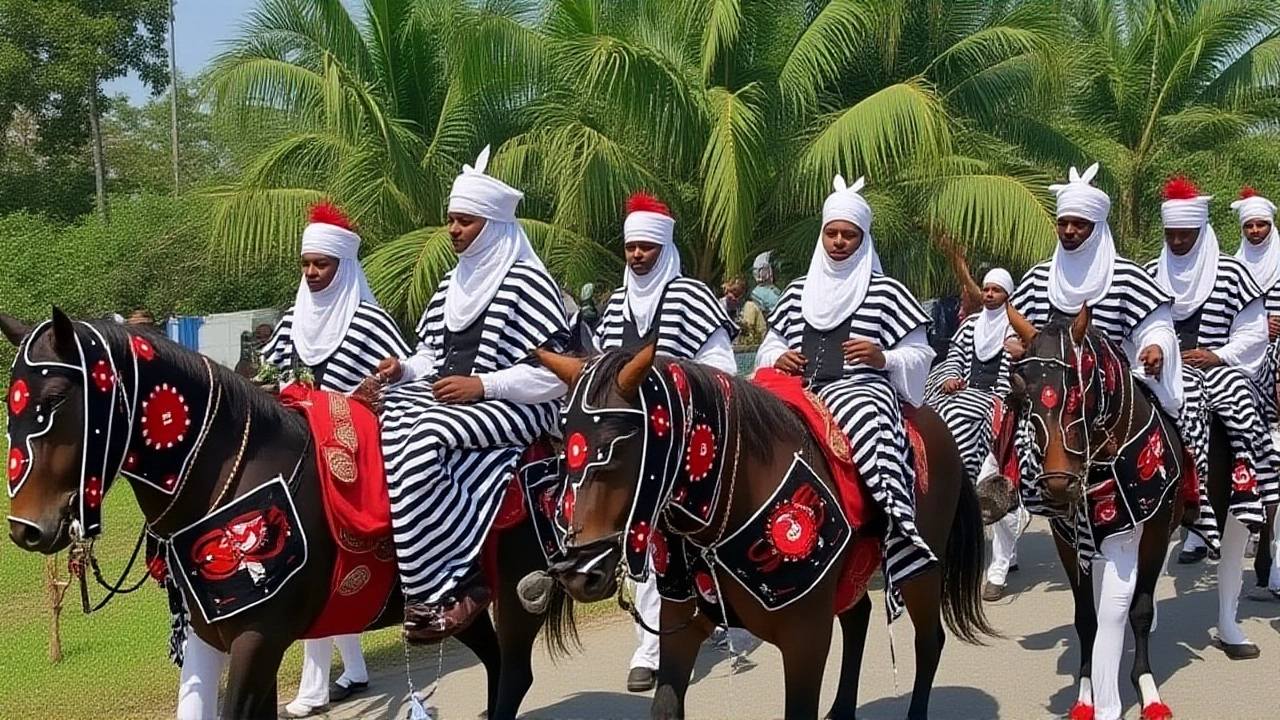When Ahmadu Bello University opened its grounds in Zaria on April 15, 2025, the campus buzzed with the sights and sounds of the 2025 Students' Cultural CarnivalZaria. The event, championed by Prof. Bashir Garba, Vice‑Chancellor of Ahmadu Bello University, and driven by Dean of Student Affairs Dr. Aisha Yusuf, aimed to showcase Nigeria’s mosaic of cultures while forging a stronger sense of unity among its diverse student body.
Background: Campus Cultural Initiatives
Ahmadu Bello University has long positioned itself as a hub for intellectual exchange and cultural dialogue. Over the past decade, the institution introduced a series of intercultural workshops, language clubs, and art exhibitions, all designed to bridge ethnic and religious divides on campus. The decision to launch an annual cultural carnival stemmed from a 2022 faculty report that highlighted rising inter‑group tensions in several Nigerian universities. By 2025, the carnival had evolved from a modest showcase to a flagship event drawing participation from every faculty.
Carnival Highlights and Performances
From the opening sunrise ceremony, the grounds were transformed into a living tapestry of color. Hundreds of students donned traditional attires—from the vibrant agbada of the Yoruba south to the intricate embroidered kaftans of the Hausa north. A standout was the majestic horse parade, a tribute to the centuries‑old equestrian traditions of Northern Nigeria. The thundering hooves echoed across the university’s main quad, reminding onlookers of Zaria’s historic role as a center of cavalry training.
- Music: Live bands performed on the Kwara drum, the Igbo udu, and the Tiv obok, creating a rhythmic dialogue between regions.
- Dance: The ‘Ekpe’ masquerade troupe from the southeast mesmerized the crowd with synchronized movements, while the ‘Bori’ devotional dance from the north offered a spiritual glimpse into indigenous rites.
- Food stalls: Over 30 vendors served delicacies such as ‘jollof rice’, ‘pounded yam with egusi’, and ‘suya’, letting taste buds travel across the nation.
The carnival also featured a “Heritage Pavilion” where students displayed artifacts, photographs, and oral histories collected from their hometowns. One exhibit—a hand‑woven ‘adire’ textile from Oyo—drew a line of curious onlookers eager to learn the story behind each pattern.
Voices from the University
"Our aim was not just entertainment," said Prof. Bashir Garba. "We wanted a platform where students could literally wear their identity and see it respected by peers. When I watched a group of Yoruba students perform alongside Hausa riders, I felt the future of Nigeria in that moment."
Dean Dr. Aisha Yusuf added, "The feedback from first‑year students has been overwhelming. Many told us they felt a stronger connection to classmates they’d never spoken to before. That kind of social cohesion is priceless for academic success."
Student leader Chukwuka Okeke, president of the Cultural Society, shared a personal anecdote: "I grew up in Lagos, but I never really understood the northern traditions until I rode a horse in the parade. It changed my perspective on what it means to be Nigerian."

Impact on Students and National Dialogue
Pre‑carnival surveys conducted by the university’s Center for Student Development indicated that 62% of respondents felt “moderately” connected to peers from different ethnic backgrounds. Post‑event data showed that figure jump to 88%, a striking increase that researchers attribute to the immersive nature of the carnival.
Beyond campus borders, the Ministry of Culture and Tourism sent a delegation to observe the festivities, signaling governmental interest in replicating the model nationwide. A spokesperson remarked, "Events like ABU’s carnival demonstrate how cultural preservation can coexist with modern education. We are exploring partnerships with other universities to scale this initiative."
Future Outlook and Recommendations
Buoyed by the success, ABU’s administration plans to expand the carnival into a week‑long cultural summit, inviting scholars, artists, and policy‑makers to discuss heritage preservation amid rapid globalization. There is also talk of integrating the carnival’s activities into the university’s credit‑bearing curriculum, allowing students to earn community‑service points for participation.
Critics, however, caution against over‑commercialization. A faculty member from the Department of History warned, "We must ensure the event remains a genuine celebration rather than a tourist attraction that dilutes the authenticity of our traditions."
Nevertheless, the consensus among students remains hopeful: the carnival has become a yearly reminder that Nigeria’s strength lies in its diversity, and that universities can play a pivotal role in nurturing that unity.

Key Facts
- Date: April 15‑17, 2025
- Location: Zaria, Ahmadu Bello University campus
- Participants: Over 4,000 students from 32 ethnic groups
- Organizers: Office of the Vice‑Chancellor, Dean of Student Affairs, Cultural Society
- Government involvement: Observation by the Ministry of Culture and Tourism
Frequently Asked Questions
How does the carnival benefit first‑year students?
First‑year students often struggle to find social footholds. By participating in the carnival’s collaborative performances and shared stalls, they interact with peers from varied backgrounds, fostering friendships that improve retention and academic performance.
What role did the Ministry of Culture and Tourism play?
The ministry sent a delegation to document the event and discuss potential funding for similar cultural carnivals at other Nigerian universities, signaling a policy shift toward integrating heritage preservation into higher education.
Will the carnival become a part of the academic curriculum?
University officials are piloting a credit‑bearing module where students earn community‑service points for organizing or performing in carnival events, linking cultural engagement directly to graduation requirements.
How many ethnic groups were represented?
Participants showcased traditions from 32 distinct ethnic groups, ranging from the Yoruba and Igbo to the smaller Tiv, Nupe, and Fulani communities, making it one of the most inclusive campus events in recent memory.
What challenges could arise as the carnival expands?
Critics warn that scaling up may attract commercial sponsors, risking the authenticity of the displays. Balancing funding needs with cultural integrity will be essential to keep the carnival’s original spirit alive.


ARPITA DAS
October 6, 2025 AT 03:52One can't help but notice how the university conveniently timed the carnival just before the Ministry's budget review. It's almost as if they're staging a cultural showcase to distract us from the looming policy shifts. The whole spectacle feels less like celebration and more like a carefully choreographed PR stunt. Still, the flamboyant attire and horse parade do provide a visual feast, even if the motives are suspect.
Just saying.
Sung Ho Paik
October 7, 2025 AT 17:13Wow, what a vibrant display of unity! 🎉 The energy on campus must have been electrifying, and it’s awesome to see students stepping out of their comfort zones. Events like this really help break down barriers and build lasting friendships. Keep the spirit alive, ABU! 🌍
Sanjay Kumar
October 9, 2025 AT 10:53Clearly the organizers are trying too hard to look inclusive, but the real story is hidden behind glossy photos. If you look past the surface, the power dynamics remain unchanged.
Shreyas Badiye
October 11, 2025 AT 18:26The 2025 Cultural Carnival at ABU was more than just a series of performances; it was a living laboratory for intercultural empathy. Watching the Yoruba agbada shimmer beside the Hausa horse riders made me feel the pulse of Nigeria’s diversity in real time. Each drumbeat from the Kwara drum, each rhythm from the Igbo udu, blended into a harmonious conversation that transcended language barriers. The food stalls, offering jollof rice and suya, became informal classrooms where students exchanged stories over shared bites. I was especially moved by the Heritage Pavilion, where a simple hand‑woven adire cloth sparked discussions about regional histories and lineage. The enthusiasm of the student volunteers was contagious, turning what could have been a passive audience into active participants. Even the first‑year students, who often feel adrift, found a foothold by collaborating on stage. The post‑event surveys proved that the sense of belonging jumped dramatically, a testament to the power of immersive cultural experiences. Moreover, the presence of the Ministry hinted at a potential policy shift, signaling that academia can influence national cultural strategies. While some worry about commercialization, the authenticity of the performances held strong, thanks to student‑led planning. In the long run, integrating the carnival into the curriculum could provide formal recognition for cultural stewardship. The horse parade, echoing Zaria’s cavalry heritage, reminded us that tradition and modern education can coexist. Overall, the carnival set a benchmark for how universities can shape societal cohesion through celebratory yet purposeful events.
Simardeep Singh
October 14, 2025 AT 02:00One could argue that the carnival acts as a microcosm of the larger philosophical debate about identity formation within structured institutions. When students don traditional garments, they're not merely performing; they're enacting a narrative of collective memory. Such enactments, though seemingly superficial, embed deeper ontological questions about belonging. In that sense, the event transcends mere festivity and becomes a rite of self‑realization.
Aryan Singh
October 16, 2025 AT 09:33The initiative showcases how cultural exchange can directly impact student retention and academic success. By providing a platform for students to share their heritage, the university fosters a supportive environment. It also offers a template for other institutions aiming to address inter‑group tensions. Overall, it's a commendable step toward holistic education.
Poorna Subramanian
October 18, 2025 AT 17:06Well done, ABU.
Soundarya Kumar
October 21, 2025 AT 00:40I appreciated how the carnival managed to stay inclusive without turning into a commercial circus. The genuine enthusiasm from participants made it feel like a community gathering rather than a staged production. It’s encouraging to see students taking ownership of cultural dialogue. Hopefully this model spreads to other campuses.
Sudaman TM
October 23, 2025 AT 08:13Honestly, I think the whole thing was overhyped. 🎭 Sure, the colors were nice, but does a three‑day party really solve deep‑seated ethnic mistrust? Probably not.
Rajesh Soni
October 25, 2025 AT 15:46From a stakeholder analysis perspective, the carnival serves as a low‑cost intervention with high visibility ROI. However, to sustain impact, metrics should be implemented beyond anecdotal feedback. Integrating longitudinal studies could quantify shifts in intergroup cohesion. Such data would bolster arguments for scaling the model.
Nanda Dyah
October 27, 2025 AT 22:20While the aforementioned recommendations are theoretically sound, one must also consider the epistemological constraints inherent in self‑reported surveys. Without rigorous triangulation, the asserted increases in unity remain speculative at best.